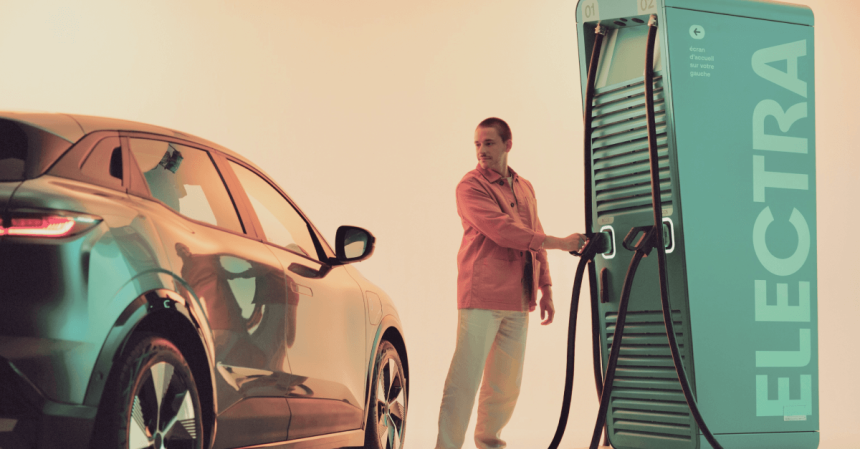EV charging startup, Electra, has secured a €433 million green loan from a consortium of eight banks, to accelerate the deployment of its charging stations across European countries.
According to the company, this reinforces its push to curb transport emissions amid rising climate urgency.
The loan, composed of €283 million in committed funds and €150 million in future capital, comes on the heels of a €304 million equity raise in Electra’s Series B round.
With over €1 billion now raised in total, Electra sees itself as a key enabler of climate transition across the world.
“Building a station costs between €500k-700k,” says Electra’s CEO Aurélien de Meaux. “So we need a lot of cash to deploy our network.”
What This Means
Transport accounts for nearly 25% of Europe’s greenhouse gas emissions, with road traffic a major contributor.
Electra, which is building a network of fast-charging stations for electric vehicles (EVs), currently operates 510 stations across nine European countries.
By the end of 2025, Electra aims to reach 700 stations, and 2,200 by 2030, a timeline, experts say, aligns with Europe’s broader climate frameworks.
According to Electra, each new station not only supports cleaner transport but also encourages consumer transition away from fossil fuel-powered vehicles.
The company’s CEO said the new funding will enable the company to increase the density of its network in countries where it is already present.
“In countries where we expanded more recently, like Switzerland, Austria, Germany and Spain, we must continue to invest massively to build a network,” says de Meaux.
Why Climate Finance Matters More Than Ever
According to Sifted, climate tech investment in Europe dropped 40% in H1 2025, as macroeconomic uncertainty and tighter scrutiny dampen investor enthusiasm.
Experts say Electra reflects growing alignment between climate finance and EV infrastructure, with investors increasingly channelling capital into projects that advance the low-carbon transition.
“The technology is here, the autonomy is here, the prices are going down, charging networks are developing,” Meaux says. “Putting a doubt on this trajectory would be fallacious. EVs are going to be the dominant technology of the 21st century.”
Understanding Electra’s Model
De Meaux says Electra plans to use the new funds to position itself as a consolidator, and is on the lookout for opportunities to buy competitors.
“We’ll be going after companies that can help expand our network, which have sites and infrastructure,” he says.
According to Meaux, the company develops both the charging stations and the software ecosystem that optimises use, reduces energy waste, and enhances grid efficiency.
EV users can also book charging slots, get recognised automatically, and pay for charging, all through the Electra platform.
Talking Points
It is encouraging to see Electra secure a €433 million green loan to expand its EV charging network, especially at a time when climate tech funding in Europe has slowed significantly.
This green financing demonstrates that climate-aligned infrastructure projects, when backed by strong execution and a clear decarbonisation impact, can still attract major capital even in a cautious investment environment.
At Techparley, we view Electra’s expansion not just as a scaling of EV charging, but as a critical intervention in reducing transport emissions, one of Europe’s biggest climate challenges.
By deploying fast-charging stations in high-traffic areas across nine countries, Electra is directly supporting the EU’s 2035 ban on fossil-fuel vehicles and helping accelerate mass adoption of electric mobility.
Yet policy consistency will be key. As global temperatures continue to rise, scalable solutions like Electra’s offer a blueprint for how private innovation, public policy, and green finance can converge to fight climate change in tangible, everyday ways.





